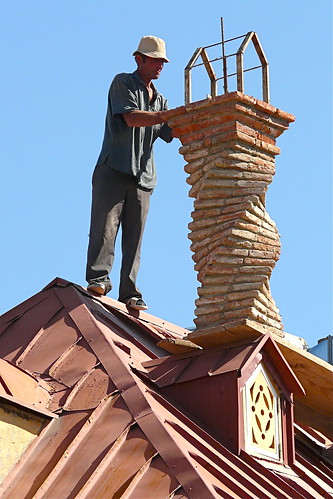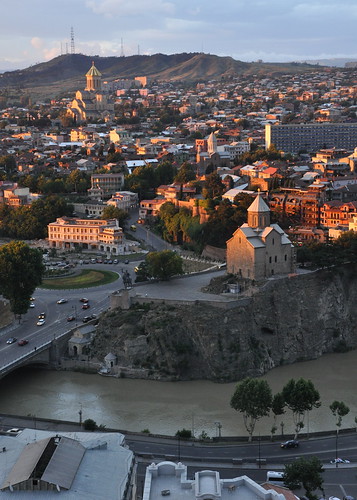My Experience In Georgia

We hear from Tashia Shupert who tells us all about her time volunteer teaching with TLG in Georgia. She is currently teaching in South Korea and would very much like to visit Georgia once more. Here you can read about her first few days in Georgia, some of the ups and downs of her time there and her thoughts on her whole experience.
My initial reaction upon arrival was that TLG staff were there to help us immediately. When we arrived at the airport we were actually presented with a miniature bottle of free Georgian wine at the passport inspection desk because Georgia is rightly proud of its excellent wine…. after we picked up our luggage there was a team of TLG staff waiting in the arrivals lobby to greet us. They were easy to find (with a giant, red TLG sign), and they gave us name badges right away and guided us to the currency exchange in the airport.
The staff that greeted us were very friendly, and before leaving the airport they explained how our housing in Georgia would be arranged for the training week. There was a very large group of volunteers that arrived at the same time, but the staff had buses waiting for us and they helped us load our luggage. We made our way to a hotel where we stayed for one week for our orientation/training, which I found extremely useful. The training I had in Korea had only lasted for 2 days. The TLG training was fairly thorough, with room for improvement, but still beneficial.
Breakfast and Lunch were provided by the hotel, so we did not have to pay for these expenses. We were given itineraries for the first day of training as soon as we arrived at the hotel before we checked into our rooms, and the TLG had an office set up right there in the hotel. All in all, I felt the greeting and training introduction were well organized. We didn’t have to deal with any stress of figuring out where we were going to sleep the first night, or how our day would start the first morning.
TLG staff also tried to help our transition into the capital city, Tbilisi, which is where our training took place, but not all of the volunteers were teaching English in Tbilisi. The staff provided buses so that groups of volunteers could tour some very helpful and historic areas of the city with TLG staff…such as popular shopping areas, more cost-effective shopping areas, popular restaurant areas, and the region around the Mtkvari River, which has an important role in Georgia’s history. The tours were a bit difficult to manage because there were nearly 100 volunteers completing the training at once. Every session was segmented into groups, but these groups were still rather large.
After we completed our training, all the volunteers were given a list of the regions they would be teaching in, as well as a list of every volunteers’ contact info, (email address and phone info. if they permitted), as well as information about every volunteers’ regional placement. I could see that TLG really wanted to emphasize the importance of networking between the teachers….and I found this extremely useful throughout my time in Georgia. I definitely used that contact info to keep in touch with several teachers, we traveled to different regions in Georgia together. This gave us a nice outlet we could use to keep in touch with each other which really came in handy when we were feeling down or going through culture shock. Keeping in contact helped us realize that many of us were experiencing a lot of the same difficulties in our adjustment to a new country. I appreciated that TLG put so much effort into keeping the teachers in a loop.
On the day we met with our host families….generally most of the teachers (and families too) were excited but extremely nervous. We were informed by TLG staff that many families in Georgia were eager to host the families for a few reasons:
1. Many of the families had younger children, and they really wanted their children to have a chance to practice English.
2) Guests are typically highly honored in Georgian culture. To have a guest in your home is treated as something very significant.
3) Georgian history informs us they were formerly part of the Soviet Union, Georgia is not as accustomed to having expats working/teaching/volunteering in Georgia as say, Korea or many countries in Europe.
Of course I did meet several tourists and foreign employees alike while I was staying in Georgia, but my overall impression was that many people were highly curious (in a friendly rather than hostile manner) about foreigners’ purpose in Georgia. I had many people ask me where I was from, what I was doing in Georgia, and always they would ask….what did I think of Georgia? I think many of the families were interested in hosting a volunteer, because this is somewhat out of the norm to be acquainted foreigners at all in Georgia, although a lot of what I’m saying is my own impression for just the short time I was there for.
You can read more about her adventures in Georgia from her blog which you can find here.






